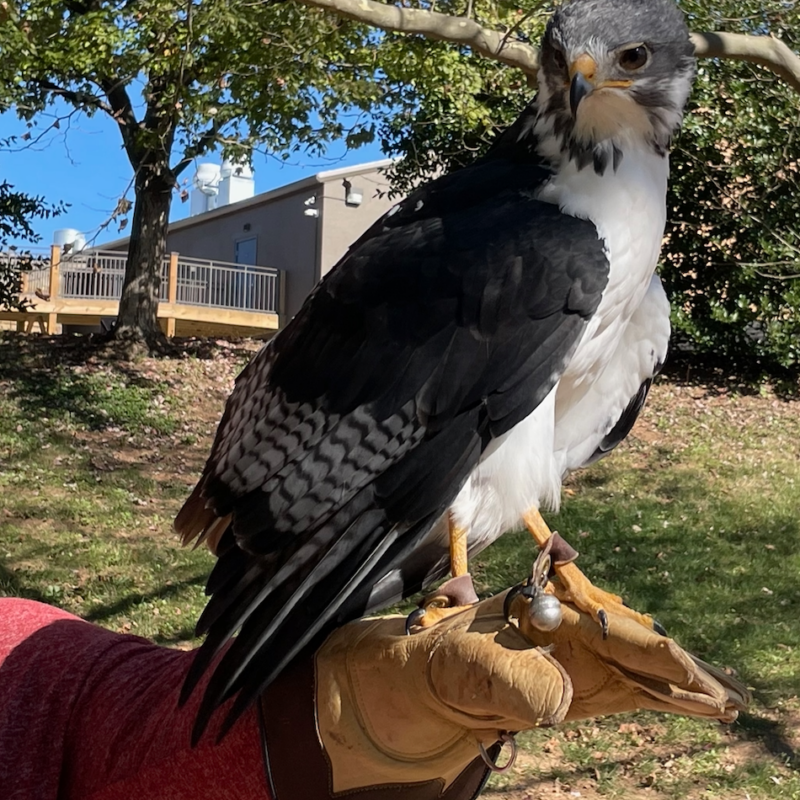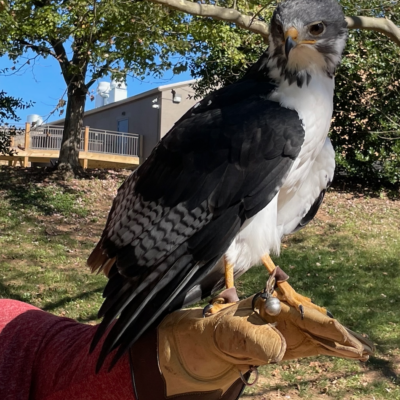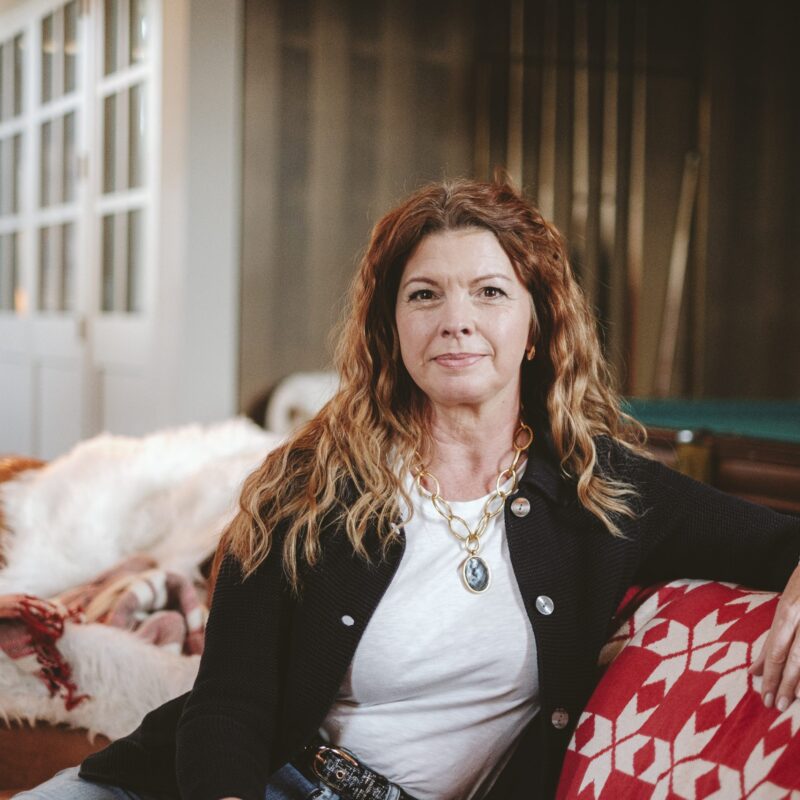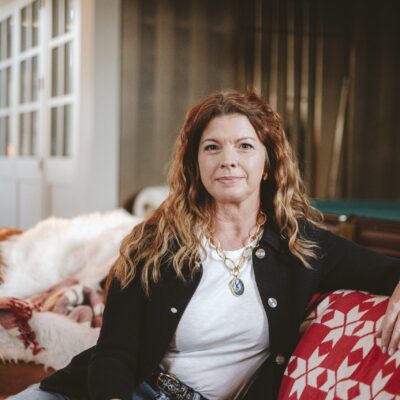Harmony garden
 |
It’s been three years since Marlene Condon, who lives in Albemarle, published her book Nature-Friendly Garden, but her wisdom only gets more relevant with time. If your urge to dig in the dirt is waking up with these longer, warmer days, but you’re not too thrilled about fighting off aphids and groundhogs, heed Condon’s advice: Drop the battle metaphor, work with nature instead of resisting it, and your garden will be healthier and more satisfying.
Example? Slugs and snails, says Condon, do not deserve to be trapped or poisoned. They actually help fertilize the garden by breaking down organic matter. If they’re eating your plants, she explains, it’s because they’re too numerous and a bit desperate for food. One solution is to make sure you have some moss in your yard. Lightning bugs will lay their eggs there, and when the larvae hatch, they’ll prey on the slugs and snails, controlling their numbers without any suspicious chemicals.
Besides gardening (and observing everything from woodpeckers to grey foxes in her yard), Condon teaches classes on gardening and wildlife at PVCC. Check out her book—an earth-friendly favorite for spring.—Erika Howsare
Share your food
It’ll be a little while until the local-produce season is back in full swing, but it’s not too early to join a CSA. Some farms are already signing up members—for starters, check out Appalachia Star, Roundabout and Ploughshares, and open up the Buy Fresh/Buy Local guide for a longer list of local CSAs.
|
One way to support local ag: Join a CSA. Here, the folks at Appalachia Star work their fields. |
Still wondering what a CSA is? Briefly, it’s a subscription-based farm, to which you pay a lump sum at the beginning of the season. As long as there’s something growing (usually May to October), you’ll get a bag of veggies every week. Sometimes there are flowers, eggs or honey, too. And though your share may have you drowning in beets for a week or two, in general it’ll be a fun way to eat locally and seasonally. (Don’t worry: You can still brave the hoardes at the farmer’s market if you want to.)
According to a recent Daily Progress story, Albemarle’s lost 8 percent of its farmland over the last five years. Meanwhile, a Local Food Hub project, which would establish a centralized spot where farmers can store, process and distribute their stuff, took a blow from the county supes. The upshot? The people who bring us our food could use our support. Find a CSA list at pecva.org.—E.H.
Accidental preservation
|
Biscuit Run will stay green a bit longer than planned. |
Some green-minded folks were not too disappointed to hear that because of the bum economy, Biscuit Run, the 3,100-unit housing development planned for Old Lynchburg Road, is going to hang out on the drawing board longer than expected.
Biscuit Run, probably on account of its sheer size, inspired plenty of outcry when it was going through the approval process back in 2007. Though the project’s 1,400 acres are seen as a prime spot for development, given their proximity to Charlottesville, opponents had argued against it on grounds of traffic, open space and car-centric planning.
A post about Biscuit Run on C-VILLE’s Green Scene blog drew comments like this one from “Rich”: “This is a beautiful and historic area, (there are civil war era ruins and graveyards on this land), and it should be perserved for generations to enjoy, not developed. Let’s hear it for silver linings!” While the project hasn’t been killed by any means, it’s interesting to think that the construction hiatus provides a window for renewed discussion.—E.H.
Recycling’s finer points
Some of us do-gooders can take recycling to the extreme—disregarding the numbers on plastic, leaving plastic pour spouts on paper milk cartons, or trying to recycle bottles which may contain hazardous waste. But such things could contaminate an entire bale of plastics ready for market. Here’s the 411 from Betty.
First, if the container is labeled “danger” or “caution,” use extra care when disposing. Empty motor oil bottles, lawn and garden containers, and antifreeze are not allowed for recycling because of potential contamination issues. Save these for “Household Hazardous Waste Day” (check betterworldbetty.org/events.html for spring dates).
Second, use common sense when cleaning empty peanut butter or mayonnaise containers, reports Bruce Edmonds, Rivanna Solid Waste Authority’s Recycling Coordinator. Namely, don’t use excessive amounts of water for cleaning, but enough to deter insects.
Empty bleach bottles (1s or 2s) are recyclable.
Unused prescription drugs should be thrown in the trash or sealed in a bag with undesirables (orange peels, coffee grounds) according to the EPA. About a dozen are O.K. to flush (check the list: epa.gov). Unfortunately, Charlottesville does not (yet) have a pharmaceutical take-back program. Recycle the leftover pill bottle (numbers 1 and 2) normally.
Empty aerosol cans (hairspray, bathroom cleaners), which are steel, are recyclable, unless they still contain chemicals or paint. The spring “Household Hazardous Waste Day” is your best bet for those.
Finally, items containing mercury—old thermometers or CFLs—are accepted at the McIntire facility.—Betty World Betty
|
Does plane trip = tree? Offset your long trips by contributing a carbon-reducer. |
Dee tree, boss!
We’d like to think that our growing eco-conscience won’t prevent us from ever again seeing our friends in other states. And while it’s true that flying on a plane contributes to carbon emissions—2.8 tons per passenger on a round-trip flight from Richmond to Los Angeles—you can attempt to offset the damage by planting a tree. Two ways to fly the greener skies:
—Buy a young fruit tree at Edible Landscaping (361-9134) and give it a home in your backyard, for delicious, local carbon reduction.
—Have a tree planted on your behalf through friendsoftrees.org or arborday.org.—E.H.








